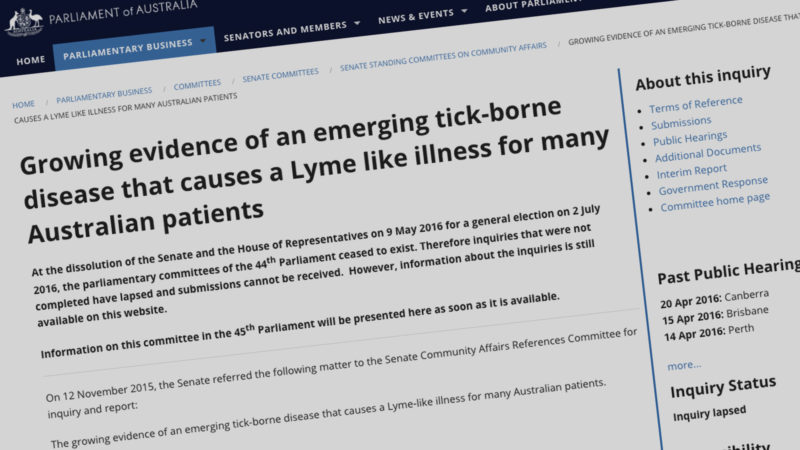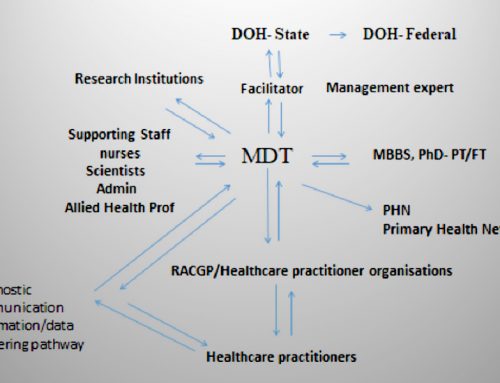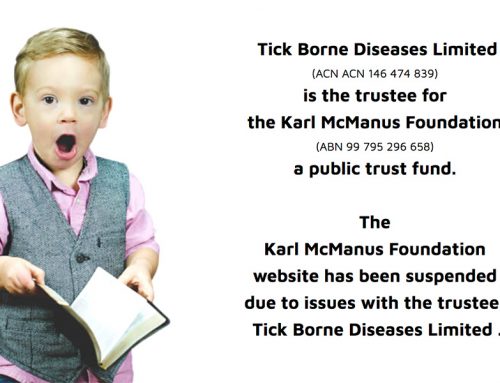A lack of real action following the recent Senate Inquiry into tick-borne diseases in Australia is costing lives according to the Karl McManus Foundation. The not-for-profit organisation is leading the Australian research program into the issue and says that delays to progress will contribute to immeasurable hardships for many Australian patients.
A Senate Committee report recently outlined twelve key recommendations for action related to diagnosis, treatment and research around tick-borne disease in Australia. The recommendations followed widespread community consultation into emerging evidence that tick-borne diseases are responsible for serious illness in many Australian patients. A copy of the report can be found online.
The report was completed in November 2016, but there is scant evidence of any tangible progress on implementing the recommendations since then.
Dr Mualla McManus, Director of the Karl McManus Foundation and infectious disease researcher, said there had been no progress in convening a summit of key stakeholders to establish a multi-disciplinary approach to addressing tick borne disease in Australia.
“The Senate report suggested that health authorities should address this issue and convene a summit of stakeholders, researchers and medical experts as a matter of urgency. Unfortunately we’ve seen no real urgency and this is coming at a real cost. We know of cases where people have lost their lives due to the trauma of dealing with chronic pain caused by a tick-borne diseases. Every week that passes increases the burden of this disease on the community,” said Dr McManus.
“We stand ready to participate in a constructive way to the development of better, evidence-based protocols around the management of tick-borne diseases. However, the health authorities need to establish a framework from which consensus and action around those protocols can emerge,” added Dr McManus.
Tick-borne diseases are highly controversial in Australia with widespread agreement that Lyme Disease does not exist here, but strong disagreements about the cause of serious illnesses with catastrophic symptoms and the best way to treat them.
“The Senate enquiry was a positive start but we are calling for urgent evidence-based action. A summit of key stakeholders and treating healthcare professionals seems to be a sensible first step,” concluded Dr McManus.







Leave A Comment
You must be logged in to post a comment.